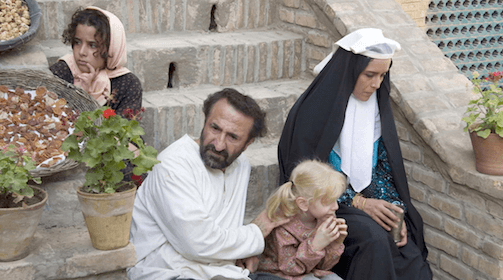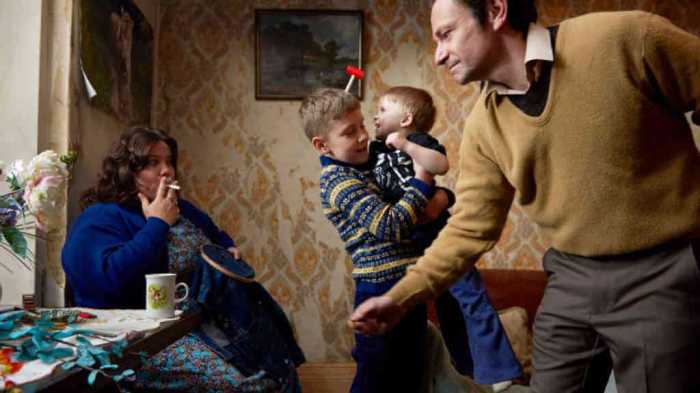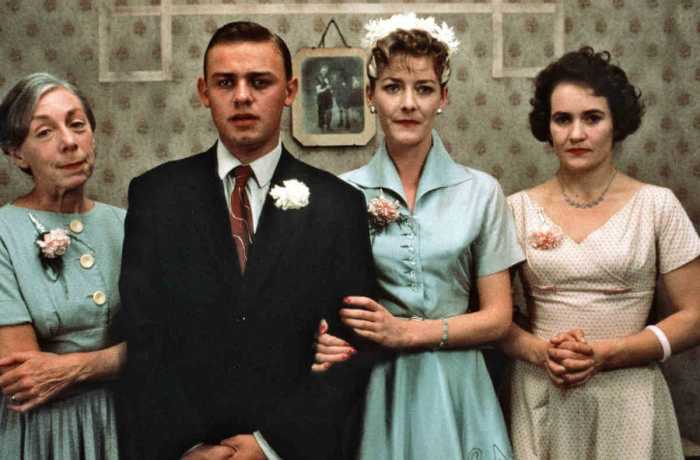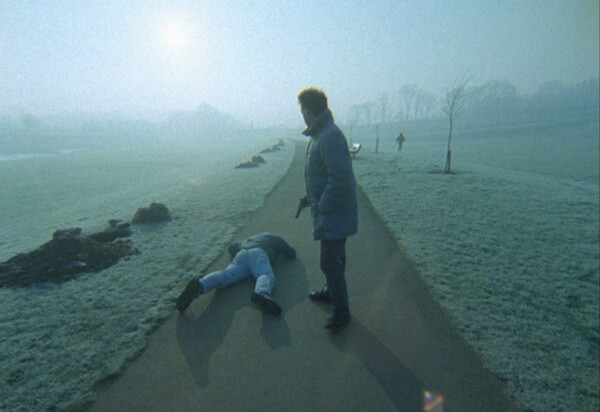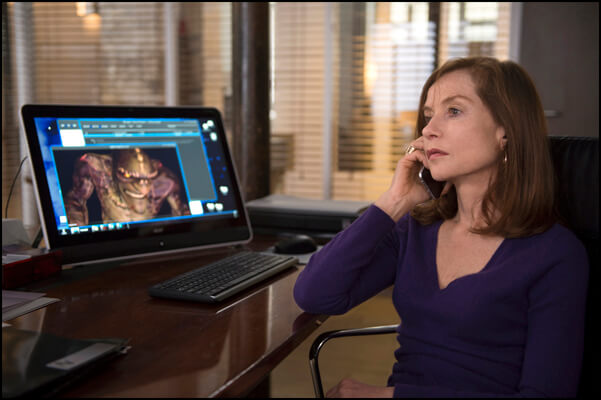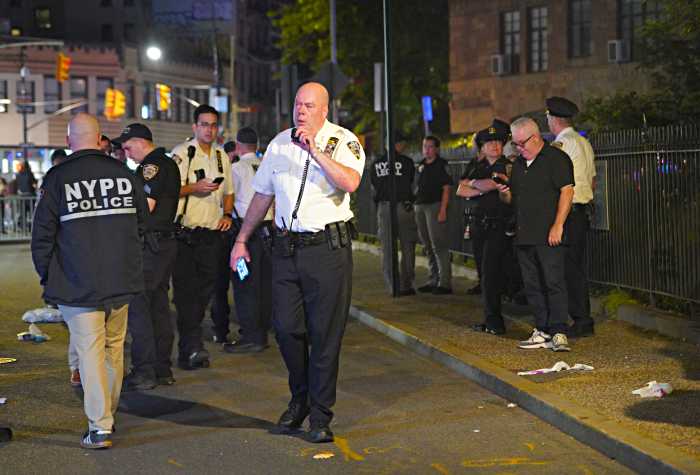BY STEVE ERICKSON| Now in its 16th year, “Film Comment Selects” has grown mature enough that its program notes describe French director Philippe Grandrieux as a series regular. It opens and closes with films by out gay directors: Terence Davies’ “Sunset Song” (Feb. 17, 7 p.m.) and the late Chantal Akerman’s 1986 musical “Golden Eighties” (Feb.24, 8:45 p.m.). In between, it stops at Iran, Serbia, France (repeatedly), Poland, Japan, the UK, and Russia and makes room for a two-film Charles Bronson spotlight. One of the most valuable aspects of Film Comment’s year-end critics’ poll is its list of the year’s best undistributed films. This year’s “Film Comment Selects” makes it a little easier for New Yorkers to see some of those films.
Kianoush Ayyari is not a name that will resonate with many American fans of Iranian art cinema. In fact, “The Paternal House” (Feb. 20, 6:45 p.m.) is the only film he’s managed to make in the 21st century. Completed in 2012, it was held up by Iranian censors for three years and is only now hitting the international film festival circuit. It’s both familiar and unusual in its context. In the late ‘90s and early ‘00s, Iranian cinema sometimes seemed like the planet’s most feminist, and “The Paternal House” partakes of that tradition.
In 1929, a father slaughters his daughter in an “honor killing” because he suspects that she sleeps around. He and his young son bury her in the basement of the titular mansion. While he doesn’t realize it, this murder will have consequences for his family decades into the future.
Sixteenth edition of “Film Comment Selects” highlights maturity of Lincoln Center festival
The politics of “The Paternal House” may not break new ground, even if they’re admirable, but what’s new about Ayyari’s film is the way it plays like an epic, multi-generational melodrama. The director proves to have quite a flair for drama, which seems all the more powerful for its claustrophobia: the film never leaves the house and its courtyard. Let’s hope his next film doesn’t get another three-year ban.
World War I left a long mark on French culture, as seen in films from Jean Renoir’s “La Grande Illusion” to more recent work like Bertrand Tavernier’s “Capitaine Conan” and Serge Bozon’s “La France.” Damien Odoul’s “The Fear” (Feb. 18, 8:45 p.m.; Feb 19, 4:30 p.m.) fits into this tradition. Made approximately a century after the start of that combat, it depicts three friends enthusiastically joining up. Gabriel Dufour (Nino Rocher) expects war to be like a movie. In the opening scene, a pacifist is beaten in a bar brawl, followed by the crowd singing the French national anthem “La Marseillase.” Clearly, there’s no room for anything other than nationalist sentiment in 1914 France.
“The Fear” contains relatively little dialogue; instead Gabriel delivers a nearly constant voice-over of letters to his girlfriend. These track his growing disillusionment, which begins almost as soon as he sees combat. Very quickly, one of his friends is killed and he realizes that combat consists of standing in muddy trenches, firing at distant enemies, and getting eaten alive by lice. The film’s cinematography is suitably muted: only the red of blood and the blue-gray and red of French uniforms are allowed to stand out. Despite Gabriel’s devotion to his girlfriend, the film’s emotional palette is similarly opaque. While some have taken this for a flaw on Odoul’s part, I think it shows the numbing effects of combat. While not as original as “La France,” a war film about deserters running away from battle, “The Fear” can safely take a place among the canon of French films about World War I.
This year, “Film Comment Selects” honors Polish director Andrzej Zulawski with a selection of four of his films, including the brand-new “Cosmos” (Feb. 19, 6:30 p.m.). Unfortunately, it’s not the best introduction to his work; it doesn’t come close to rivaling the 1981 horror film/ relationship drama “Possession” as his best film. Based on a novel by Witold Gombrowicz, “Cosmos” suffers from the sense that a lot got lost in translation. Its subtitles, taken from French, are full of awkward puns, wordplay, and nonsense. These undoubtedly worked better in Gombrowicz’s novel, and I’m sure they work better in Zulawski’s film if one understands French.
The film tells the story of two young male friends who stay at a country home, where they begin to see strange signs around them. Hints of an occult presence appear, such as hangings of birds. The presence of actress Sabine Azéma, who often worked with her husband Alain Resnais, evokes that late director’s spirit, and the sense of mystic portent also recalls Jacques Rivette and Raoul Ruiz. But in the end, “Cosmos” doesn’t add up to much.
FILM COMMENT SELECTS | Film Society of Lincoln Center, Walter Reade Theater, 165 W. 65th St. | Feb. 17-24 | $14; $11 for students & seniors at filmlinc.org

